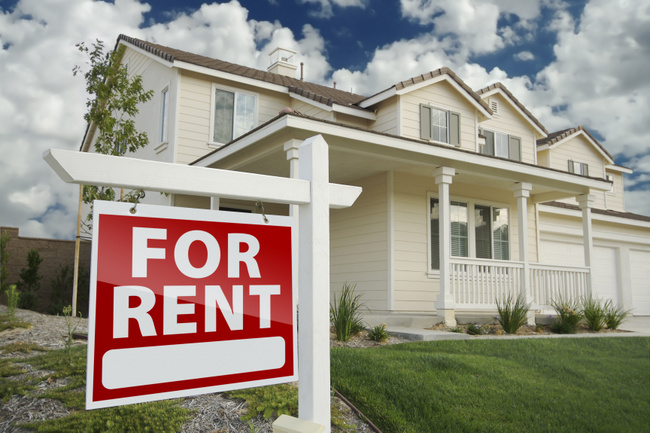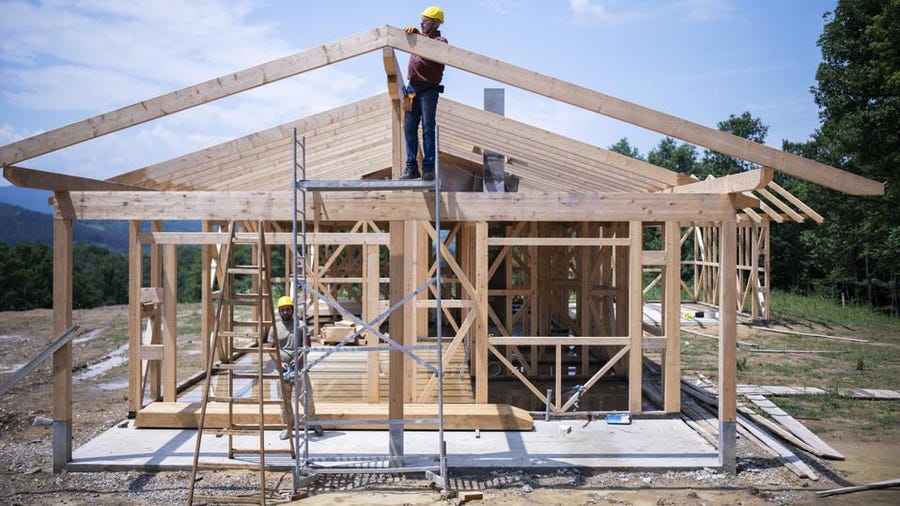The rental affordability crisis continues to worsen, with high demand combining with low supply to push prices up and leave many Australians struggling to find a home.
Marissa Grafton has been searching for a rental property in the Northern Rivers region of New South Wales for six months now, after her landlord returned to her previous rental.
"I've been doing sublets, staying at friends' places – it's been really hard, I just cant seem to find anything more permanent," Ms Grafton said.
She has been attending multiple inspections and has applied for three rentals unsuccessfully, which she put down to intense competition.
"I have a dog, which doesn't help, and Im a casual worker. I'm assuming the tenants getting in instead of me are professional couples without pets."
The number of homes available for rent in regional parts of the country has plunged to almost half pre-pandemic levels, down a staggering 40%, according to PropTrack data.
City-dwelling tenants are also facing tough conditions, with data showing that since February 2020, the number of homes available for rent across the capital cities has fallen by close to a quarter.

Experts believe more action needs to taken by governments to reduce the pressure on the rental market. Picture: realestate.com.au
"Rental competition is tough at the moment," PropTrack senior economist Eleanor Creagh said.
"The number of properties available for rent has fallen to historically low levels and demand to rent is up, particularly in the capital cities, with Covid-normal underway and the borders having reopened."
And things are likely to get much worse before they get any better, Ms Creagh said.
"A return of migration and an imminent rebound in the international student market will continue to add to rental pressures, further shrinking the supply of available properties."
Construction necessary and home ownership key
There are several ways to help ease the mounting rental pressure, including making home ownership more accessible and building more of the right homes in desirable locations, Ms Creagh said.
"Any demand side incentives should be tied to unlocking land, improving planning system efficiencies, and boosting new supply," she said.
"A critical lack of rental supply that pushes rents ever higher in some regions – nationally, median advertised rents on realestate.com.au have increased by 7% in the past 12 months alone – makes these issues even more significant for those who are not yet homeowners."
There are several home-buying incentives that have been introduced by the government, including Help to Buy, Home Guarantee, Family Home Guarantee, Regional First Home Buyer Support Scheme, and First Home Super Save Scheme.
But what about for those Australians who can't afford to buy their home?

Tenants Union NSW boss Mr Patterson Ross believes housing needs to be considered a human right. Picture: Getty
More from news
Housing is a human right
Leo Patterson Ross is the chief executive of Tenants Union of NSW and said the issue with the current rental market is that housing is not considered an essential need.
The dialogue around this needs to urgently change, Mr Patterson Ross said.
"Like energy, water, education, and healthcare, as a country we need to agree that the whole community needs access to safe, stable, affordable essential services, and the same needs to apply to housing," he said.
"Having determined this, we can recognise that we need sufficient homes for everyone to live in, but we also need to not waste the dwellings we already have that could be used as homes.
"Whether it's through new construction, or reallocation and subsidy, we need both quick fixes and long-term solutions that create a stable renting sector that provides the safe, stable, affordable places to call home. That's what the community needs."
Mr Patterson Ross added that government needs to step in to ensure tenants are not unfairly evicted from their homes, that homes are up to standard, and that people with disabilities or those who are elderly can access affordable homes that meet their needs.
"It's worth remembering that 80 years ago, the Commonwealth Housing Commission concluded: 'We consider that a dwelling of good standard and equipment is not only the need but the right of every citizen – whether the dwelling is to be rented or purchased, no tenant or purchaser should be exploited by excessive profit.'
"I'm not sure who actually disagrees with that statement today, but as a country we aren't acting like we think it is true."




